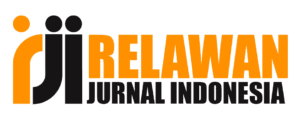The Dynamics of Digital Transformation in Celuk Village: Opportunities, Challenges, and Readiness
Abstract
This research aims to analyze the dynamics of digital transformation in Celuk Village with a focus on opportunities, challenges and village readiness in adopting digital technology. Using the Technology Acceptance Model (TAM) framework, this research evaluates perceived usefulness (PU), ease of use (Perceived Ease of Use/PEOU), attitudes towards using technology (Attitude Toward Using Technology), behavioral intentions to use technology (Behavioral Intention to Use Technology), and actual use of technology in the context of digitalization of village government. Research findings show that the Celuk Village Government has started a digitalization initiative by developing a village website that provides information and catalogs of silver crafts. This website is considered a significant first step in increasing the transparency and accessibility of information. However, digital administrative services are still in the development stage and have not been fully implemented. The main opportunity lies in the relatively high readiness of village officials' human resources (HR) in adopting technology, as well as basic infrastructure such as public Wi-Fi that supports access to digital information. Village communities also show a fairly good level of digital literacy, especially in the context of using technology to promote local products.
References
Bagozzi, Richard P. (2007). The Legacy of the Technology Acceptance Model and a Proposal for a Paradigm Shift., Journal of the Association for Information Systems, 8(4). DOI: 10.17705/1jais.00122. Available at: https://aisel.aisnet.org/jais/vol8/iss4/12
Bokolo A. (2021). Managing digital transformation of smart cities through enterprise architecture–A review and research agenda. Enterprise Information Systems, 15(3), 299–331. https://doi.org/10.1080/17517575.2020.1812006
Data Indonesia. (2023). Ada 83.794 Desa/Kelurahan di Indonesia pada 2022, Ini Sebarannya. Diakses dari https://dataindonesia.id/varia/detail/ada-83794-desakelurahan-di-indonesia-pada-2022-ini-sebarannya
Davis, F. D. (1989). Perceived Usefulness, Perceived Ease of Use, and User Acceptance of Information Technology. MIS Quarterly, 13(3), 319–340. https://doi.org/https://doi.org/10.2307/249008
Debbarma et al. (2023). Digital transformation in local governance: opportunities, challenges and strategies. International Journal of Social Science, Educational, Economics, Agriculture Research, and Technology (IJSET). 3(1). DOI:10.54443/ijset.v3i1.304
Detik Finance. (2022). Tantangan RI Genjot Ekonomi Digital, 12.500 Desa Belum Dapat Internet. Diakses dari https://finance.detik.com/berita-ekonomi-bisnis/d-6240848/tantangan-ri-genjot-ekonomi-digital-12-500-desa-belum-dapat-internet
European Comission. (2021). DigComp 2.0: The digital competence framework for citizens. JRC-IPTS. https://ec.europa.eu/jrc%0Ahttp://publications.jrc.ec.europa.eu/repository/bitstream/JRC101254/jrc101254_digcomp2.0thedigitalcompetenceframeworkforcitizens.updatephase1.pdf
Fadlan, Ramadhan & Fardani, Irlan. (2020). Kajian kesiapan penerapan desa digital pada desa wisata dengan pendekatan model stope di desa sukalaksana. Prosiding Perencanaan Wilayah dan Kota. 6(2). https://karyailmiah.unisba.ac.id/index.php/PWK/article/view/22726
Kominfo. (2021). Program Desa Digital Bantu Wujudkan Pemerintahan Pintar. Diakses dari https://aptika.kominfo.go.id/2021/12/program-desa-digital-bantu-wujudkan-pemerintahan-pintar/
Kompas. (2023). Perkembangan Desa Digital belum Masif. Diakses dari https://www.kompas.id/baca/nusantara/2023/11/21/pengembangan-desa-digital-belum-masif#:~:text=Pemerintah%20Indonesia%20telah%20menjalankan%20program,menjadi%20desa%20digital%20pada%202025.
Lailiyah, Kusroh. (2022). Digitalisasi desa sebagai upaya percepatan pelayanan publik dalam mewujudkan good governance. Jurnal Riset, Inovasi dan Teknologi Kabupaten Batang. 6. 26-34. 10.55686/ristek.v6i2.112.
Scupola A., Mergel I. (2022). Co-production in digital transformation of public administration and public value creation: The case of Denmark. Government Information Quarterly, 39(1), 101650. https://doi.org/10.1016/j.giq.2021.101650
Seifert, J.W., dan Bonham, G. M. 2003. The Transformative Potential of E-Government in Transitional Democracies. Proceedings of The International Conference on Public Administration in the 21st Century: Concepts, Methods, Technologies, School of Public Administration, Lomonosov Moscow State University.
, E., & Mouffe, C. (1985). Hegemony and Socialist Strategy. Verso. https://doi.org/10.1017/CBO9781107415324.004
Mouffe, C. (1993). The Return of the Political. Verso.
Rawls, J. (2001). Justice as fairness. Contemporary Political Theory: A Reader. The Belknap Press of Harvard University Press. https://doi.org/10.4135/9781446215272.n2
Sidel, J. T., & Paredes, O. T. (2000). Capital, coercion, and crime: bossism in the Philippines. Choice Reviews Online, 38(04), 38-2396-38–2396. https://doi.org/10.5860/choice.38-2396.
Venkatesh, Viswanath & Morris, Michael & Davis, Gordon & Davis, Fred. (2003). User Acceptance of Information Technology: Toward a Unified View. MIS Quarterly. 27. 425-478. 10.2307/30036540.
Copyright (c) 2024 Journal of Governance and Local Politics (JGLP)

This work is licensed under a Creative Commons Attribution-NonCommercial-NoDerivatives 4.0 International License.










